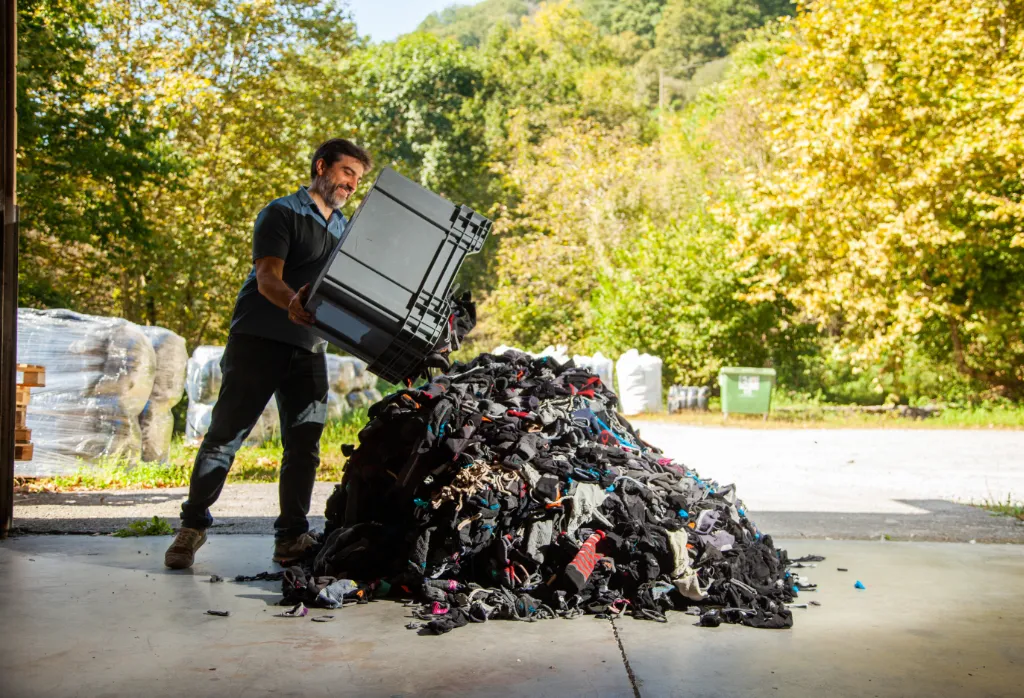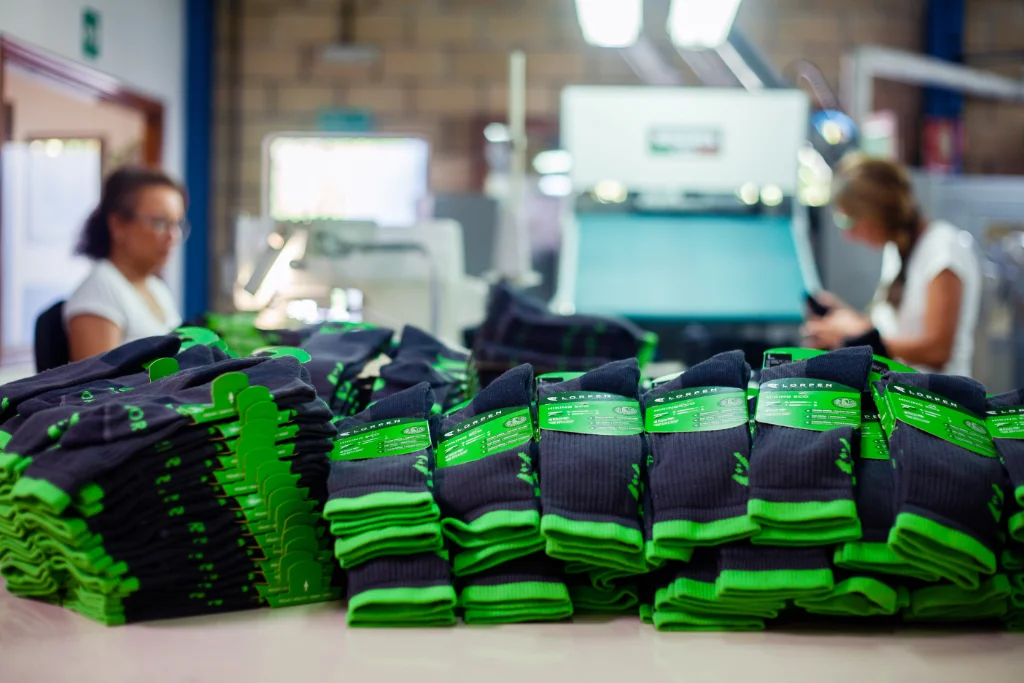Known and admired by outdoor activity enthusiasts, Lorpen socks stand out for their innovation and quality. Their exclusive technologies combine different layers of materials to ensure comfort, durability, and moisture control — all in a sustainable way!
Founded in 1985 in the Basque Country, Spain, Lorpen uses 100% sustainable fibers sourced from Spain, Portugal, and Italy, and is distinguished by the longevity of its products — an essential pillar for the brand. “Even though the materials used are recycled, we always test their durability and resistance to wear,” explains Miren Olaetxea, the company’s product manager.
100% renewable energy
Certified as a B Corporation, Lorpen develops several initiatives that ensure excellence in five impact areas: employees, environment, customers, governance, and community. One of them, related to the environment and reflected in all the others, is the use of 100% renewable energy since 2014, in partnership with Goiener — a non-profit cooperative project focused on generating and consuming renewable energy.
“Energy, especially electricity, has become a basic good in our society today, almost as essential as food or water. Goiener wants people to regain control over this resource and become aware of its importance. To achieve this, it promotes responsible and sustainable energy consumption,” says Miren.
All the benefits obtained from the commercialization of sustainable electricity among its members go back to the cooperative itself — and the members are the ones who decide how to allocate them. In addition, they have the opportunity to invest in renewable generation projects whose production will be consumed by the cooperative. The ultimate goal is to balance the amount of energy generated with that consumed by its members — always from renewable sources, with rational and efficient use.
Sustainable economy – Lorpen’s differentials
Lorpen emits 50% less greenhouse gases compared to the general sock industry. One of the actions contributing to this positive impact is transforming the factory’s waste into insulation materials for the automotive and construction industries, in partnership with RB Fibres, a textile recycling specialist.

Water savings of 50% is another of Lorpen’s highlights. This reduction is achieved through the adaptation of specific washing programs for each type of material and load.
Another innovative practice during production is returning the thread cones for reuse by suppliers. “Although it takes more effort to sort and return the cones correctly, reuse is always better than recycling,” explains Miren.
Low environmental impact packaging
To reduce the environmental impact of its packaging, Lorpen uses low-density polyethylene plastic bags and boxes made with 60% recycled cardboard, maintaining a constant process of evolution, as explained by the product manager:
“Starting from the FW25 collection, the bags will be 100% recycled, and the boxes will be made entirely from recycled material. In addition, we redesigned Lorpen’s packaging: the new design uses less cardboard, allowing the printer to optimize each sheet and generate less waste.”

Investment in social and environmental programs
Just like Gear Tips, Lorpen supports the EOCA – European Outdoor Conservation Association since 2009, with a commitment to give back to nature part of everything it provides us. Through this partnership, the company participates annually in Earth Day.
A recent initiative from Lorpen is a project under development to recover wool from the Pyrenees region in Navarre, Spain, which will have a positive impact both on the local primary sector (livestock) and the environment. “Currently, tons of excess sheep wool are discarded in landfills in the region. With this project, they will become raw material for our socks. It’s a big challenge for the brand, but we hope to achieve a great lorpen (achievement, in Basque)!” concludes Miren Olaetxea.
Would you like to learn more about Lorpen’s technology and the benefits of their socks? Pedro Lacaz Amaral, founder of Gear Tips, presented here on the blog the Lorpen T3 Light Hiker Eco sock, which he used on the Camino de Santiago de Compostela.
This post is also available in: Português (Portuguese (Brazil)) Español (Spanish)
